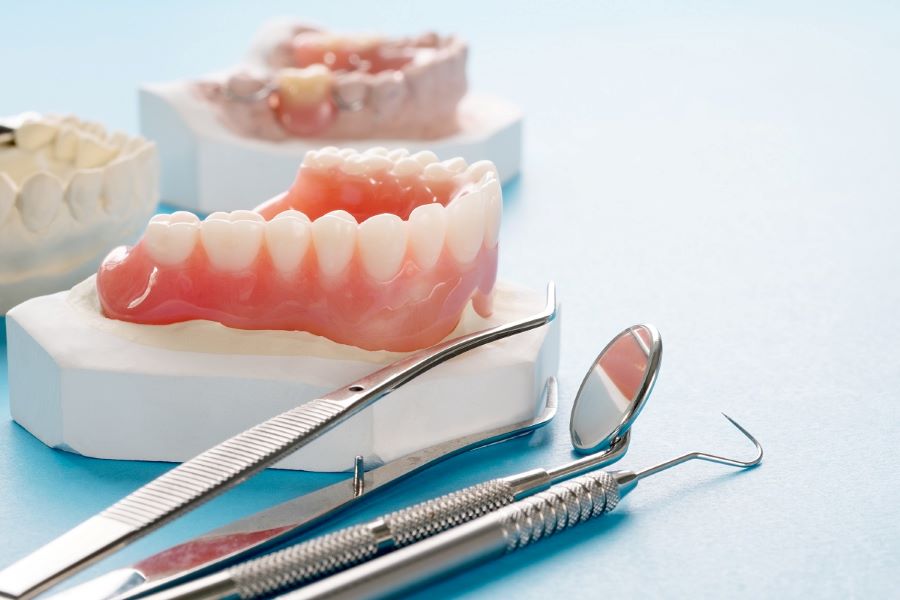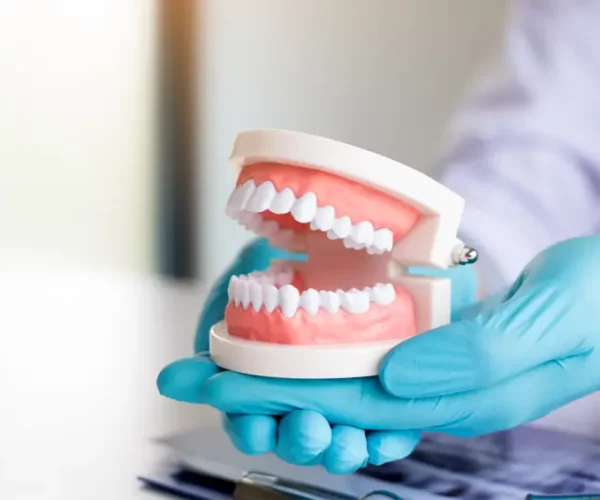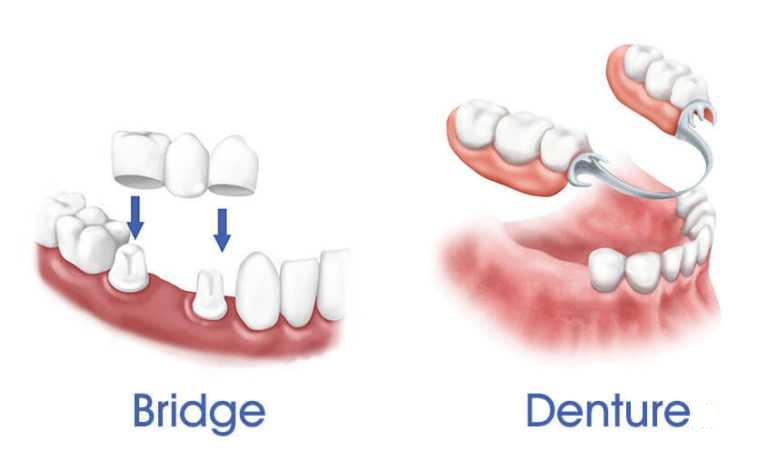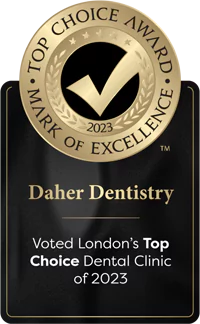Dental bridges and dentures are two different types of dental restorative approaches that can help improve your oral health and enhance your smile’s appearance. While both procedures aim to replace lost or missing teeth and improve the aesthetics of your smile, there are several significant differences between them.

Typically, dental bridges require tooth extraction to prepare the mouth before the bridge is fitted. In contrast, dentures can replace missing teeth without requiring tooth extraction, and they are removable appliances that can be taken off for cleaning purposes or while sleeping.
At Olive Tree Dental, we offer the best dental restorative services to our clients, ensuring they receive high-quality oral treatments that last longer without causing any problems. We take tooth impressions to create personalized dentures that fit comfortably in your mouth and restore your smile’s natural look.


While dentures offer a temporary solution to missing teeth as they are removable, they are not recommended for sleeping and need to be taken off at night. In contrast, dental bridges are a more long-term solution and can closely mimic the form and functionality of original teeth. With proper care and good oral hygiene routines, dental bridges can last more than 15 years.








© Copyright 2025 | Olive Tree | Privacy Policy | All Rights Reserved